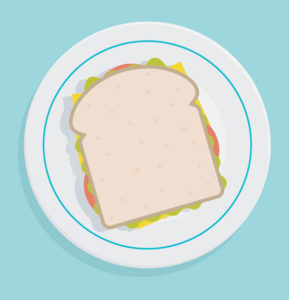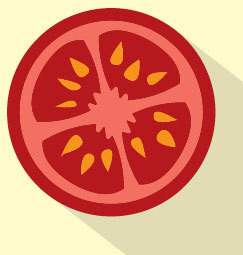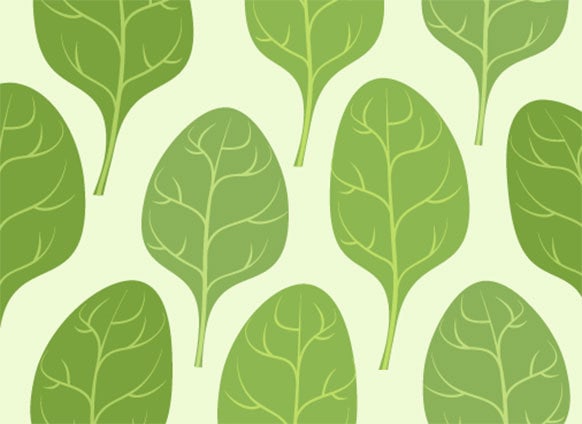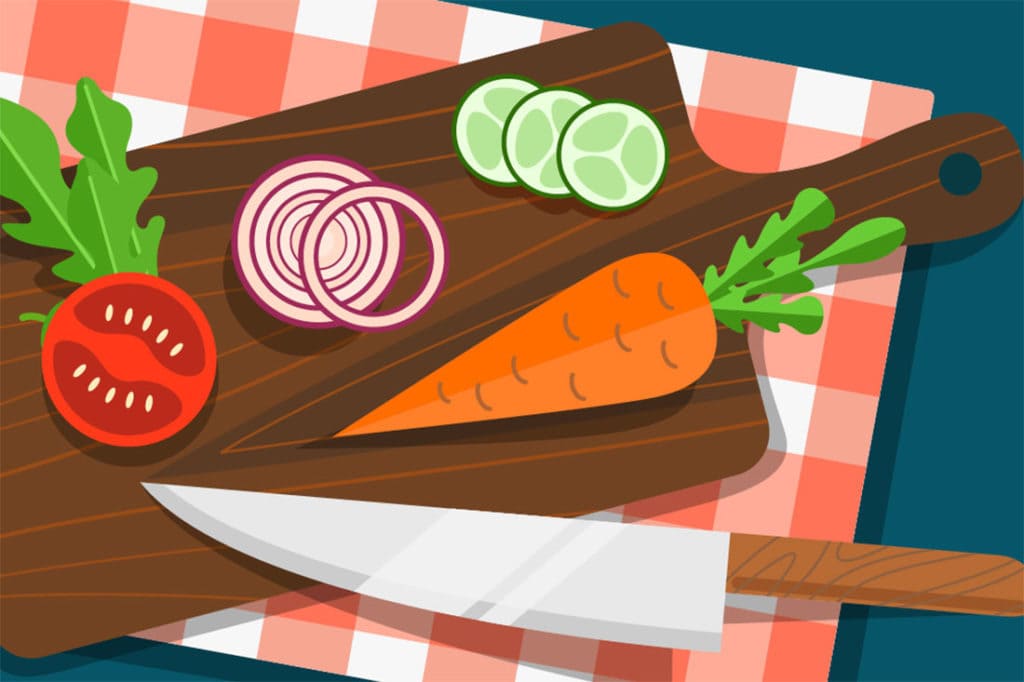On the first night in my new apartment almost three summers ago, I hovered over the countertop and cried my way through a turkey panini and five beers. The sun set while I assembled my Ikea furniture. I didn’t bother to turn on many lights; darkness felt appropriate. The next night, I came home from work, unpacked the few boxes I had left, finished the 12-pack of pale ale I’d started the night before and went straight to bed. My appetite—for everything but beer and bourbon, it seemed—was gone.
Brittany and I were avid home cooks. Our shared love of food and the conversation that came from a table surrounded by friends was strong enough to obscure our dissimilarities. We were the kind of people who’d text message grocery lists late in our workdays. I loved her more than I thought I could possibly love someone other than myself, and the day she told me she wanted a divorce, I vomited my lunch in the backyard of our suburban home.
 I moved out almost immediately; at first, I didn’t even take a frying pan. I was 29 and didn’t know another divorced person my age. I was living alone for the first time in six years.
I moved out almost immediately; at first, I didn’t even take a frying pan. I was 29 and didn’t know another divorced person my age. I was living alone for the first time in six years.
Related: How I Learned to Enjoy Being Alone
My lack of hunger was unfamiliar. Even the grocery store suddenly intimidated me. For a couple of months, the only thing I could muster in my new, small kitchen was turkey from the deli and pepper jack cheese, eaten straight from the package. I’d stack a slice of meat on top of the cheese, roll them into a little tube, and take a bite. Eventually I graduated to chicken and cheese and beans from a bright yellow restaurant called Phat Burrito. I had been reduced to a stereotype—the bachelor with a bare pantry and a fridge full of beer.
I was incapable of separating my wrenching sadness from even the most mundane ingredients. Red bell peppers reminded me of the ones I diced into our breakfast potatoes. Avocados existed only for Brittany to mash into guacamole. I couldn’t conceive of another use for them. Like me, they were now useless.
* * *
We met by chance, on vacation in Bermuda, a decade ago. She was still in college; I had just graduated. Our relationship was as much about culinary delights as it was anything else. The first time she visited me in Virginia, where I was working as a small-market TV news reporter, I cooked shrimp scampi. I hadn’t saved enough money to buy living room furniture, so we sat on the carpet, legs folded, plastic bowls in our laps. I did purchase a coffee maker especially for her visit because she told me she couldn’t function in the morning without one. While I was waiting for her to arrive, I test-brewed pot after pot. By the end of the weekend, before she drove back to North Carolina, I had learned that she didn’t like spicy food or banana-flavored candy.
In her small rental house three hours away, we made chicken fajitas and drank bottles of cheap red wine. We always played music while we cooked, from a playlist of our combined tastes: Janis Joplin and Miles Davis, Van Morrison and Etta James. We knew we were in love by the end of the summer.
Before we started dating, she had spent a summer studying in Spain and learned a recipe for espinacas con garbanzos—spinach with chickpeas. Later, after she graduated and moved to Virginia, we meticulously saved money to buy our first house. In an attempt to trick ourselves into thinking we were eating at a nice restaurant, Brittany made espinacas for dinner. The smell of earthy cumin filled our apartment kitchen, and we topped the mixture with a couple of eggs fried in olive oil. I opened the windows to keep the burning oil from setting off the smoke detector. The whole meal probably cost us seven bucks, but everything about it made us feel rich.
Related: Guy Fieri’s 5 Quick, Shocking, Life-Changing, Easy Cooking Hacks
We bought a foreclosed Colonial fixer-upper not far from the church where Patrick Henry gave his famous “liberty or death” speech. We drank Yuengling and ate Cheez-Its while we scraped 60-year-old wallpaper out of the living room. One cold January night, I seared mahi-mahi, made a pot of tagliatelle, and pulled a ring out of my pocket halfway through dinner. Brittany, not expecting anything more than a typical Sunday night meal, wore sweatpants and a T-shirt. When I asked her to marry me, her first response came through a mixture of laughter and tears: “I’m wearing my [freaking] pajamas!”
We exchanged vows that October.
Relationships change us in big ways, sure, but it’s the subtle adjustments that alter our daily existence. We buy a certain kind of toothpaste or toilet paper, for instance, because that’s what the other person likes. We add their music to our playlists. We learn our partner’s preferences—red onions give her heartburn; he thinks feta smells like dirty socks—and adjust our own life accordingly.
Our love was, at least initially, the kind friends sought for themselves. We enjoyed cooking because it was a way to unwind together. I’d chop, she’d sauté. She’d be in charge of fish (I had a tendency to overcook it) and we joked that my Greek grilled chicken was “world-famous-to-us.” Recipes became markers in time, across six homes in three cities. There was the herb-crusted turkey I made for the first Thanksgiving we hosted. A shaved Brussels sprout salad for Valentine’s Day. Cheesy pasta with the world-famous chicken, artichoke hearts and roasted red peppers after I finished my first triathlon. We served the food on our favorite dinnerware, indigo plates and bowls that we received as wedding gifts.
Our split wasn’t particularly messy, though it wasn’t a “conscious uncoupling,” either. It was painful—for both of us, I know now, but especially for me because I didn’t see the end coming. We spent more and more time apart. Brittany’s love faded. Our shared interests diverged.
She told me all this one June night in 2015, gently, as we sat on our king-sized bed in the house we had just bought in the suburbs, in a neighborhood with soccer fields and Fourth of July parades. It was a place we thought we’d stay for a while. She wore my beat-up gray T-shirt. We talked for hours, and if you’d driven by and looked through our window, you would’ve thought we were discussing a late night pizza order.
We took a few weeks to try to work things out before that Saturday when she said, “I’m done,” and I threw up in the backyard.
Related: Ending a Relationship? Here Are 6 Ways to Break Up Better
A couple of months after I moved out, we met to sort through some of our belongings and divide everything into piles for each of us. We got to the dinnerware and Brittany offered it to me, all eight place settings. She knew how much I enjoyed being in the kitchen. We stood there, outside our cluttered storage unit packed with our whole life, staring at the boxes full of plates. Bitterness coursed through me with a ferocity that surprised both of us. I exploded with resentment, yelling everything I had pent up.
We sat down on the pavement and cried. She and I never could bring ourselves to hate each other, but that’s the closest we came. I took the place settings home that night and carefully unwrapped the bubble wrap that surrounded them, simultaneously cursing her for leaving me and hoping that maybe she would change her mind.
I slammed the cabinet door and opened a beer.
* * *
 The tomatoes were too ripe to ignore—glossy and red, with flesh that gave just a little when I pressed it.
The tomatoes were too ripe to ignore—glossy and red, with flesh that gave just a little when I pressed it.
I was at a farmers market not far from my new apartment, about a year after we separated. A judge had signed off on our divorce; I was surprisingly unaffected when the signed letter came in the mail. Although I was dating again, I hadn’t conquered my culinary grief. I avoided our recipes in favor of simpler creations. But I had finally been able to handle more than takeout and sliced turkey.
The tomatoes called to me that humid Saturday morning, and I knew what I wanted for dinner: a panzanella with grilled chicken that I used to make several times a month in the summer. It was one of our favorite recipes, a crowd pleaser we would pull out for dinner parties and meals-in-a-pinch. She would rub cut garlic over the hot, grilled bread. We’d cube cold mozzarella and chiffonade fresh basil. And there would be the tomatoes, ripe and sweet and acidic.
I decided to make an adventure of it, to wrest my emotions from the ingredients. Tomatoes in hand, I wandered the market. There was no need to make a list; I could shop for this meal from memory, even the painful part. I collected a bunch of basil, a ball of cheese, a cucumber, and organic chicken. I chuckled to myself that Brittany, always the financially savvy one in our relationship, would have thought paying nearly $20 for two chicken breasts to be outrageous.
Back in my apartment, I set to work. The chicken went into a marinade of olive oil, rosemary, garlic and lemon. I chopped the cucumber and cut the tomatoes into wedges. Couples tend to divide tasks permanently—the person who rubs garlic on the grilled bread will always be the one who does that—and I found myself pausing at moments when Brittany was supposed to hand me things. The dressing, a balsamic vinaigrette, was her specialty. I didn’t attempt to recreate it. I was never good at salad dressings; the proportions were always off, she used to say, so I opted for a concoction that included red wine vinegar and more black pepper than she probably would have preferred.
As I chopped and mixed and whisked, the recipe gradually became my own. As I ate—and enjoyed—my dinner, the slightly melted mozzarella and the crunchy bread, any sadness I felt about cooking without my partner receded. My resentment had faded, I noticed. It had happened gradually, but I was unburdened, as if making the panzanella was the permission I needed to give myself to enjoy cooking alone.
I began to understand cooking as therapy. A 2016 study published in the Journal of Positive Psychology suggested everyday creative projects—such as cooking—can lead to higher enthusiasm and feelings of personal growth. Plenty of home cooks describe time in the kitchen as relaxing; they slip into a trance-like state as they chop, sauté and stir. There are “breaditation” classes to help people relax, and culinary workshops designed specifically to ease anxiety.
As I chopped and mixed and whisked, the recipe gradually became my own.
The kitchen became a playground again, something I couldn’t have imagined on the turkey-and-cheese nights. I abandoned some of our recipes—things I realized I never liked anyway—and rigorously adhered to others. There was music, from a new cooking playlist without Janis Joplin.
I kneaded and rolled and cut homemade pasta on a Sunday night for the thrill of it. After I returned from a solo trip to France, I made moules frites and ate the whole pot—three pounds of mussels!—by myself. On New Year’s Day, as is the Southern tradition, I simmered collard greens and black-eyed peas. In the span of one week, I made four complete meals using new recipes for each. I Instagrammed pictures of a cast iron skillet filled with seared pork chops basted in butter and grinned when a food editor I revere sent me a message to say I executed his recipe well.
There was one meal that I was scared to confront: espinacas con garbanzos, the Spanish chickpea and spinach mixture. We had made it dozens of times since that first night when we were saving to buy our first home. We’d laugh about our favorite, spend-thrift cuisine. Of all the things we cooked, this recipe was the most ours. I wouldn’t have even known it existed were it not for Brittany. Even the thought of frying eggs in olive oil made me miss her. My bitterness was gone, but this recipe triggered a sadness that could incapacitate me for an entire night.
Interestingly enough, it was frugality that eventually led me back to espinacas.

Dinner plans with friends unexpectedly fell through and I wound up at home—I was finally comfortable calling it that, instead of “the apartment”—and quite hungry. I wanted to save money for an upcoming trip abroad and thought my failed social plans were a sign to dine in, so I rummaged through the pantry and freezer in search of a cheap meal. I saw the chickpeas and found half a bag of frozen spinach.
They went into a pan of pungent garlic and Spanish olive oil, just as she taught me. I thought about her while I cooked; we hadn’t talked in almost a year. The legumes cracked slightly as I pressed on them with a wooden spoon and dusted the mixture with cumin. I set a cast iron skillet on the stove, poured some olive oil into it, and cranked up the heat. The oil shimmered and smoked. I cracked an egg on the countertop, dropped it in the pan without breaking the yolk, and listened to it sizzle.
* * *
On a chilly Monday last fall, I came home from an early evening run to find a 3-pound chicken and a pile of produce on the kitchen counter. This—a whole bird rubbed with anchovy butter and roasted with shallots—was my latest project. “Might’ve gotten a little overzealous with dinner,” I texted my girlfriend, along with a picture of the chicken, ready for the oven.
“You’re ridiculous,” she wrote back, teasing me.
This woman I’m in love with, the one I’m sure I’ll marry, finds it odd—lovably, quirkily odd—that I’ll spend two hours on a weeknight to cook an elaborate dinner for one. “Sometimes,” she texted in jest, “I wish you would act like a normal 31-year-old single guy and order takeout.”
 The aroma of crushed garlic and woodsy rosemary filled the kitchen, the salt from the anchovies clung to my fingertips. John Coltrane’s sax exploded from a turntable and speakers in the living room. While I prepped a salad to accompany the chicken, a chef’s knife tat-tat-tatting through a red onion and onto a cutting board, I thought about my evolution in this kitchen, the same space where, in 2015, I heaped my chest onto the counter, eyes blurry from tears and alcohol, and wondered if I’d ever be the same again.
The aroma of crushed garlic and woodsy rosemary filled the kitchen, the salt from the anchovies clung to my fingertips. John Coltrane’s sax exploded from a turntable and speakers in the living room. While I prepped a salad to accompany the chicken, a chef’s knife tat-tat-tatting through a red onion and onto a cutting board, I thought about my evolution in this kitchen, the same space where, in 2015, I heaped my chest onto the counter, eyes blurry from tears and alcohol, and wondered if I’d ever be the same again.
I’m not the same, I thought as I pivoted toward the stove.
I still cook for others: a charred broccoli salad on my girlfriend’s birthday, huevos rancheros to soak up a late-night black-tie gala, scallops on a Wednesday because why not. But the kitchen has become a singular space: mine, not ours.
More than anything, cooking helped me navigate being alone. I don’t need a partner in the kitchen; I shoo away offers of help. I chop and sauté at the same time, no pause for someone else to pass me what I need. I taught myself how to properly cook fish. Ingredients have new meanings. Perhaps that’s why I was able to once again fall in love—deeply, distractedly in love.
I’m not the same, I thought as I pivoted toward the stove.
My identity is no longer wrapped up in someone else’s grocery list.
The kitchen timer interrupted my introspection. It was time to baste the chicken in more anchovy butter. I’d never cooked with anchovies at home before. Wasn’t sure I would like the final product. Didn’t care.
Cooking scares people because we don’t like to fail and so much is beyond our control; no one sets out to burn a rack of lamb to a charred, inedible crust. We screw up in the kitchen like we do in relationships and life in general—neglecting things, forgetting who we are and what we’re doing. When a recipe goes bad, we hesitate to try it again. We are vulnerable. We let ourselves be vulnerable.
The chicken needed more time, so I searched the fridge for a snack. Inside one of the drawers, I spotted sliced turkey and pepper jack, practically hidden behind hunks of artisan cheese and some prosciutto left over from an earlier meal. I reached for the familiar comfort, pulled out a couple pieces from each package and rolled them up like I used to do.
I took a bite and poured a glass of wine, a French white left over from two close friends’ fall wedding. Then I set a place for one.
Related: How I Grew by Learning How to Cook
This article originally appeared in the Fall 2018 issue of SUCCESS magazine.








